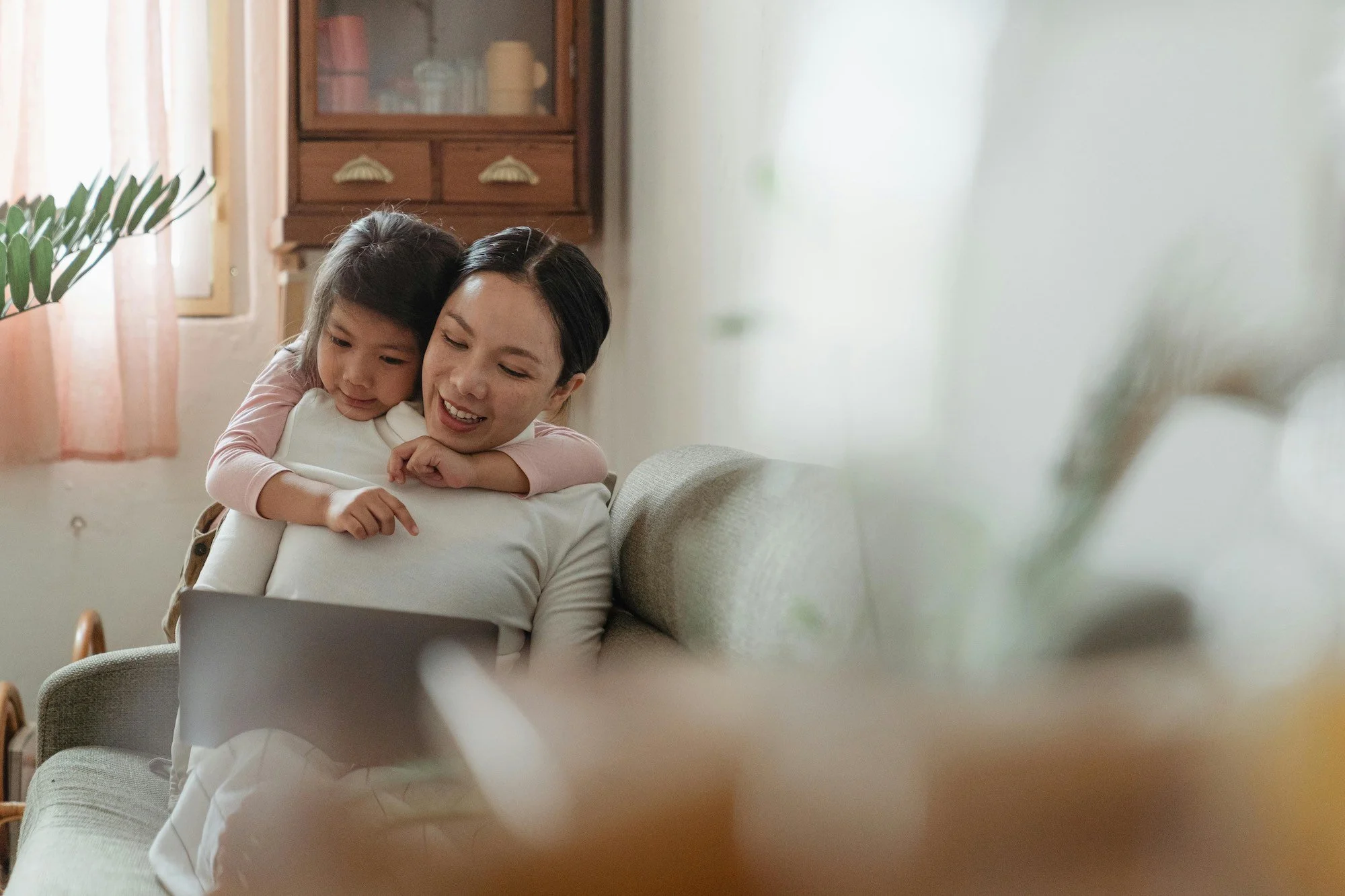Top-Rated Austin Anxiety Therapist
Our Values:
Authenticity
‣
Openess
‣
Kindness
‣
Our Values: Authenticity ‣ Openess ‣ Kindness ‣
Anxiety Therapy for Women in Austin, Texas
Takeaway: If anxiety is keeping you stuck in patterns that are no longer serving you, I’m here to help. As an Austin anxiety therapist, I help women break free from old habits and find new ways of showing up in the world. Connect with me today to get started.
Meet Sanah Kotadia, LPC, NCC | Top-rated anxiety therapist in Austin
Hi, I'm Sanah. I'm an anxiety therapist serving the greater Austin, TX area. Thanks to virtual therapy, I can also help people throughout the entire state of Texas.
As an anxiety specialist, I'm passionate about helping people get to the root of their worries. I've found that anxiety is often rooted in deeply ingrained patterns, patterns that sometimes span across generations.
I've also witnessed how transformative therapy can be in healing these patterns. I've helped dozens of people gain insight into their own anxiety and build skills to have more control over their thoughts, feelings, and relationships.
Here, I'd like to tell you a bit more about myself to help you see whether I'm the right Austin anxiety therapist for you.
Credentials: Licensed Professional Counselor and National Certified Counselor
License Number: Texas LPC #78921
Education: Master's Degree in Counseling
Modalities Used: Cognitive Behavioral Therapy, Attachment-Based Therapy, Interpersonal Therapy
Specialties: Anxiety stemming from people-pleasing, difficulty setting boundaries, perfectionism, and postpartum anxiety
Google Rating: 5.0/5.0 stars
My approach to anxiety therapy
I recognize that each person's experience of anxiety is unique, so I make sure to customize the treatment process to your specific needs and goals. Here are some of the main techniques that I may incorporate into our work together.
Cognitive Behavioral Therapy
CBT is an evidence-based treatment that focuses on the relationship between your thoughts, feelings, and behaviors. As part of this process, we'll identify the negative or unhelpful thinking patterns that keep you feeling anxious and overwhelmed. Once we understand these thought patterns, we can challenge them and make meaningful shifts to help you feel more in control.
Attachment-Based Therapy
Persistent anxiety can often stem from early childhood experiences with our caregivers. The relationship patterns you learn with your caregivers can influence your later relationships, including your connection to yourself. By exploring these dynamics, we can help you feel more secure in your relationships with yourself and others.
Interpersonal Therapy
In interpersonal therapy, we'll further explore your relationship patterns. This approach can help you learn effective communication skills and learn how to resolve conflict in a healthy, constructive way. Since anxiety and relationships can feed into each other, this can help you experience relief from anxiety symptoms and feel more confident in the way to relate to others.
Benefits of treating your anxiety
If you've experienced anxiety for most of your life, you might wonder whether therapy can actually help. Through both my professional role as an anxiety therapist and through my own personal healing journey, I've seen what a profound impact it can have.
Here are some examples of how it can help you.
Increase self-awareness
-
Anxiety treatment can help you learn more about yourself, including your emotions, needs, thought patterns, and ways of relating to others. This increased self-awareness can help you identify what exactly needs to change in order to feel more calm and confident in your day-to-day life.
Learn how to set boundaries
-
Many of the people I work with struggle to set boundaries in their personal relationships. This can be both a result and a product of anxiety. We'll work together to identify how you can show up for yourself instead of resorting to people-pleasing as a source of identity and self-worth.
Increase self-compassion
-
Perfectionism and anxiety often go hand-in-hand. Through anxiety therapy, you'll learn the skills you need to embrace yourself for exactly who you are. Perfectionism is a protective learned behavior, but therapy can show you that you may no longer need it to feel safe and valued.
Improve relationships
-
When your relationships are driven by anxiety, it's difficult to form connections based on trust, vulnerability, and emotional intimacy. This can leave you feeling chronically disconnected from others. Thankfully, therapy can build your ability to create relationships that actually fill your cup instead of draining it.
Reduce physical symptoms
-
If you experience anxiety, you know it's more than just mental and emotional symptoms. Anxiety can also come with uncomfortable physical symptoms like headaches, stomach problems, sleep issues, muscle tension, and more. By healing your anxious patterns, you can experience a reduction in these related symptoms.
FAQs about anxiety treatment
-
Here's a look at some of the most common anxiety disorders.
• Generalized anxiety disorder. Common symptoms include chronic worry, difficulty relaxing, racing thoughts, sleep issues, and more.
• Panic disorder. During a panic attack, people might experience symptoms like sweating, trembling, lightheadedness, feelings of impending doom, and more.
• Social anxiety disorder. People with social anxiety have an intense fear of being judged by others. As a result, they may blush, sweat, struggle with eye contact, or avoid certain social situations altogether.
• Postpartum anxiety disorder. Women with postpartum anxiety experience symptoms of generalized anxiety disorder in the weeks to months after giving birth.
Related disorders, such as obsessive-compulsive disorder (OCD) and post-traumatic stress disorder (PTSD), often have similar symptoms but are classified differently. If you think you may have anxiety (or another mental health issue), I recommend consulting with a therapist.
-
A licensed professional counselor, licensed psychologist, licensed clinical social worker, or other qualified mental health professional can all provide anxiety therapy.
Beyond a therapist's credentials, it's important to ask about their experience working with people with anxiety and which treatment modalities they use. Most importantly, you want to make sure that you connect with your therapist. Having a strong therapeutic relationship will help you get the most out of therapy.
-
Many people with anxiety can benefit from outpatient therapy. There are several different treatment methods that can improve anxiety symptoms, including CBT, acceptance and commitment therapy (ACT), exposure response prevention therapy (ERP), and many more.
If you have severe anxiety and/or other mental health symptoms that are making it extremely difficult to live your daily life, you may benefit from first visiting an anxiety treatment center before transitioning to outpatient therapy.
Get the personalized support you need to heal your anxiety.
Ready to finally feel like the calm, confident person you've always wanted to be? I'm here to help. Whether you're located in Austin or elsewhere in Texas, my virtual therapy room can be the space where you get the support you need to thrive.
Get Started
‣
Get Started ‣
Our Values:
Authenticity
‣
Openess
‣
Kindness
‣
Our Values: Authenticity ‣ Openess ‣ Kindness ‣










